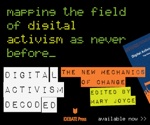![Post image for [Article Summary] HBR: Best Buy’s CEO on Learning to Love Social Media](../../../wp-content/uploads/2011/01/brian_dunn.jpg)
I’ve gotten a late start on my last issue of Harvard Business Review, which is focused on social media use for businesses. There are, as always, some great articles in here, and because of the topic, I thought it would be good to summarize some of them for you over the course of the week.
The first one was written by Best Buy’s CEO, Brian J Dunn, who’s made a huge commitment to social media - through good times and bad - for himself and for the company, and it’s a decision he has no regrets about. In fact, it’s something he urges every company who might be wavering on the subject to think about seriously and take action on.
There are a few great quotes he had throughout that really highlight his social media and business philosophy, and one that, in my opinion, should be adopted by the wary amongst you.
“Getting hacked wasn’t the only negative experience I’ve had with social media, but I’ve never considered pulling back from using them. That’s the key point: You can’t just dabble in social media. You can’t use them only when things are good. You have to deal with rain as well as sunshine. And I’m convinced that the upside outweighs the downside….Ultimately, I believe that Best Buy’s message has to be where people are. Today, that means being on social networks.”
Several years ago, you might have gotten away with just “testing” the waters. But in reality, you need to have a more robust social media component to your marketing plan. Period. If you’re not, you’re missing out…
“Many CEOs disagree. You’d be amazed at the number of people I talk to - people who run big businesses around the world - who think social networking is just a fad….It’s not. If a company, or even its chief executive, doesn’t have a presence on social networks today, that company risks not being in the conversation at all. Over time, I believe, that can be fatal to a business.”
….or potentially sabotaging your business?
“These platforms also let people get in touch with me directly, which can provide moments of serendipity. Here’s one example: On Memorial Day, I tweeted a simple thank-you to US service members for all they do, and particularly thanked Best Buy employees who are making sacrifices to serve in the military reserves. A few minutes later later I received a note from Jen Whitacre, a product specialist in one of our stores in Missouri. Over the next hour we e-mailed back and forth through Twitter. She told me that her fellow employees in the store had put together a technology system - using a laptop, a webcam, and Skype - that lets her and her three young children talk with their father, a soldier in Iraq, every night. It’s a vivid example of how the connectivity that Best Buy employees help facilitate really can improve people’s lives….without Twitter, I never would have connected with Jen.”
Just one of the examples he gives of how social media has been positive in his life. However, after a negative experience with an employee generated YouTube clip, he says:
“The whole experience was awkward. A lot of people said negative things about a company I love, and I wish it hadn’t played out on such a public stage. My reaction to the incident was similar to how I felt when I got hacked: You don’t enjoy it, but you have to be out there online, and there’s no way to put this genie back in the bottle. What you can do is try to educate employees about what’s appropriate to post and what’s not, what’s intellectual property and what’s not.”
…even in the face of some bad and public PR issues, he’s still positive.
“Mostly, though, I tend to focus on the positive aspects of social networking. I get asked all the time, “How are you going to monetize this?” I think that’s the wrong question. The right question is “How am I going to deepen my relationship with customers and employees and deepen the conversation that goes on where they are?” Right now social networks are an important part of the answer.”
“Twelpforce makes us more valuable and connected to our customers, and that’s the only sustainable way of building customer loyalty over time. People are going to shop with companies that think really care about what it is they’re trying to do. Twitter lets us demonstrate that we’re one of those companies.”
And parting words:
“The reality is that social media are where the national conversation is taking place today - and either you’re part of that conversation or you’re not.”
Fairly compelling, no?
Related articles
- The Impact of Social Media (mindjumpers.com)
- 5 Fundamentals for Successful Social Media Campaigns (socialmediatoday.com)
- How Social Media Strengthens Companies [infographic] (mindjumpers.com)
- The Most Intriguing HBR Blog Posts of 2010 (blogs.hbr.org)
- Is Social Media a Great Big Waste of Time? [Mick Say] (ecademy.com)



